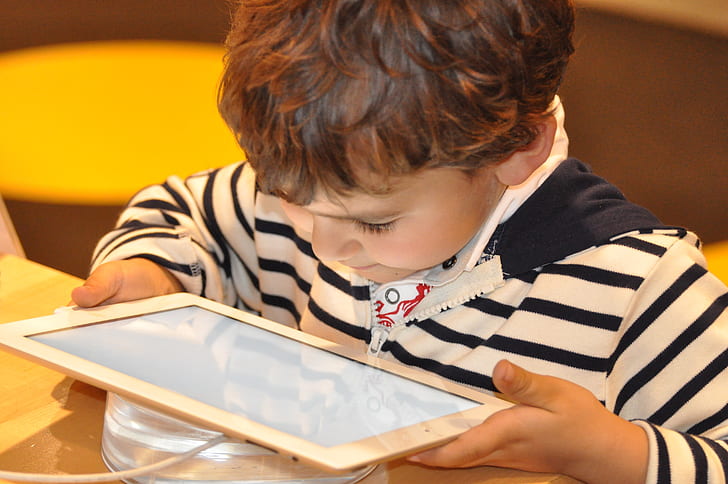Steve Jobs released the first iPad in Jan. 2010. Less than sixty days after its initial release, Apple sold more than 2 million iPads. In 2023 alone, Apple sold almost 50 million iPads. Since the initial release, however, iPads reached a new demographic: children.
While iPads appear to be a strong development tool for children at first glance, evidence suggests otherwise. These iPad-bearing children even gained themselves a nickname: iPad kid. The popular term “iPad Kid” refers to young children who intensely watch their iPads with no awareness of their surroundings. These children have no restrictions on how often they use their iPads and, typically, what they watch or engage with. People often associate these children with being covered in snot and drool, loud, obnoxious behavior, and just being overall unhygienic and unaware of their surroundings.
“I think an iPad kid is someone younger who is chronically online and physically cannot let go of their electronic device because they’re so addicted to it. They’re sticky, they have no social skills, and they’re grumpy a lot of the time,” says Mandy Vo.
“An iPad kid is a kid of this new generation who, instead of being outside or doing normal kid stuff that people usually grow up doing, they grow up in front of a screen and become addicted to YouTube and games on an iPad,” says Liddie-Ann Adams.
In a 2023 study conducted by Ippei Takahashi, Taku Obara, and Shinichi Kuriyama, evidence suggested that the amount of screen time a one-year-old child spends may lead to developmental delays. They found that an increased level of screen time led to poor communication and “daily living skills” by the time the children were two and four, respectively. Specifically, children who spent four or more hours behind a screen experienced severe communication difficulties and an inability to problem-solve.
“They are going to grow up to be less successful, and they will grow up way differently than we did because they aren’t outside. Giving children devices makes them dependent on technology at a young age for entertainment,” says Adams.
“I think giving kids devices from young ages affects their social skills,” says Vo.
Despite the negative associations with “iPad kids” themselves, their parents may be the actual ones to blame. After all, kids do not give themselves devices, but rather their parents do.
“I don’t think it’s a smart move to give your kid devices because, first of all, they’re giving their kid way too much access to the internet. You don’t know what your kid can see on the internet. And then they’re kind of taking away their childhood,” says Adams.
The previous study by Takahashi, Obara, and Kuriyama also showed that the children with the most screen time tended to have younger, first-time parents. This evidence suggests that the new age of parents fosters negative attachments between their children and their devices. With such a quickly spreading phenomenon, people must find ways to either embrace or combat the “iPad kid” stereotypes.
“There should be time limits on apps like YouTube or games. I think parents should download educational games instead,” says Vo.
“I think we should wait to give kids iPads. We shouldn’t be giving a kid an iPad at three years old. … Introduce your kids to outside, and get them a trampoline,” says Adams.
iPad sales continue to rise, and with that, the number of “iPad kids” created rises too. Clearly, this is not an issue going away anytime soon. As a society, we have two options: find a way to put an end to our dependency on devices or let the culture consume us.


